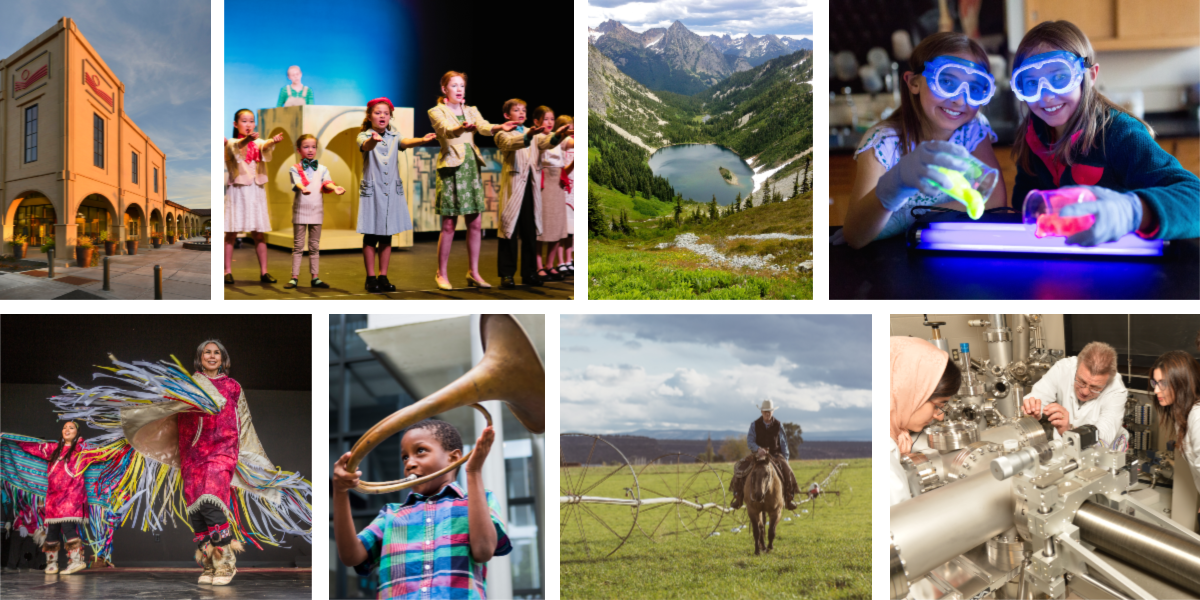It’s an exciting day at the M.J. Murdock Charitable Trust. As part of our Founder’s Day celebration marking our 44th anniversary, we announced that, since opening our doors in 1975, we have awarded more than $1 billion in grants to nonprofits that serve the Pacific Northwest.
Preparing for this announcement has allowed our team to reflect on the thousands of nonprofits we have had the opportunity to partner with over the years and the myriad projects that we have helped bring to fruition in some small way.
But as much fun as it can be to look to the past, we find ourselves more eagerly looking to the future. We find ourselves asking:
What do we have in store for the NEXT billion?
As many of you have experienced, the funding sector has seen a significant shift in the last decade. The evolution of digital communication and technology, coupled with a more active political and social landscape, has presented an important moment for foundations and funders to reflect inward and evaluate how we will move into the coming years in ways that remain true to our donor’s intent and our own core values, while embracing these important cultural shifts in authentic and meaningful ways.
As we reflect on the legacy we hope to leave with our next billion dollars in grantmaking over the coming years, it is not easy to define what that future will look like because, quite simply, it is not up to us.
Like many of you, we have never been a grantmaker that seeks out organizations and directs their focus or priorities. We know that the people who can best serve the unique needs of the diverse array of communities that make up the Pacific Northwest are the individuals and organizations that live and work directly with the people who call those areas home. For example, the needs of the Native community in Alaska will be different from the needs of the rural communities of Montana, which will be different from the needs of the Latino communities of Oregon, which will be different from the urban communities of Seattle.
Our goal has been and will be to listen to those individuals and groups that have first-hand knowledge of the challenges and opportunities in the communities across the Northwest, to come alongside them and support the work they deem necessary to serve and uplift their region. We also prioritize listening to the communities being served to ensure that our work has maximum positive impact.
We are at a critical moment where important discussions are happening around our communities in areas of inclusivity, equity, education and healthcare, as well as how we better address complex challenges related to homelessness and mental health, how we continue to support the community institutions like cultural groups, arts groups and schools that help all individuals flourish and thrive, and how we can bring together groups that may not cross paths in the normal course of work.
It is our desire to continue to participate in the conversation around these topics but, moreover, to elevate the individuals and communities working to address these challenges based on the needs of their own community. But we are just one organization within a much broader ecosystem. It takes all of us to address those needs. Having served a diverse array of communities across five states, our team has been fortunate to have a front row seat to see what makes a project or program aimed at serving those in need successful and what causes great ideas and well-meaning leaders to fail. One consistent factor is clear:
An ecosystem of collaboration is critical.
Research has shown that communities thrive when unconventional coalitions are formed—groups that normally would never cross paths, either because of ideological differences or because their work never overlaps, yet they come together to address a common issue. These conversations can be challenging, but they also ensure success by securing buy-in from all relevant stakeholders.
If our communities are to flourish and thrive, it is critical that all representatives of our region—business leaders, government officials, healthcare representatives, nonprofit professionals, educators, faith-based leaders, individual community members—join productive discussions that focus on collaborative solutions.
We consider ourselves fortunate to have so many partners in this community that recognize and value the impact of collaboration and coalition building. Your partnership over the last 44 years, be that as an advisor, volunteer board member, nonprofit leader, collaborator or informational resource, has been crucial to our success and the success of the nonprofits and communities we serve. As we begin the path toward another billion invested in the coming years, we look forward to connecting and collaborating with all of you as we all seek to ensure that every individual, family and community in the Pacific Northwest can flourish and thrive.



